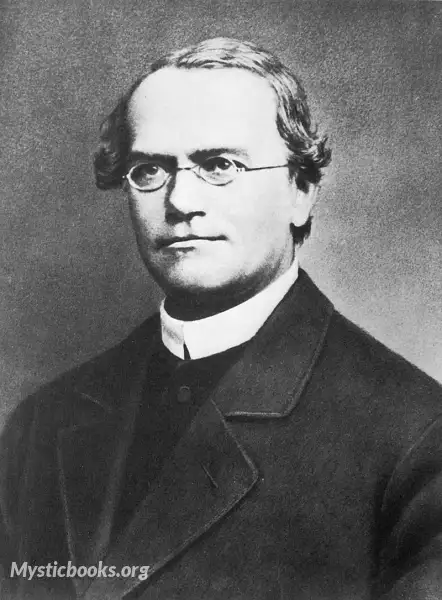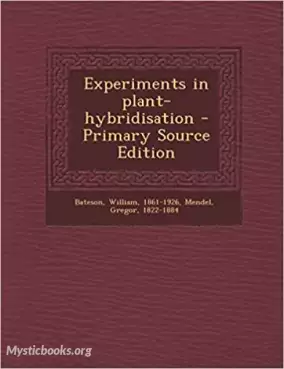
Timeline
Title
Country/Nationality
Gregor Mendel
Gregor Johann Mendel was a biologist, meteorologist, mathematician, Augustinian friar and abbot of St. Thomas' Abbey in Brünn (Brno), Margraviate of Moravia. Mendel was born in a German-speaking family in the Silesian part of the Austrian Empire (today's Czech Republic) and gained posthumous recognition as the founder of the modern science of genetics. Though farmers had known for millennia that crossbreeding of animals and plants could favor certain desirable traits, Mendel's pea plant experiments conducted between 1856 and 1863 established many of the rules of heredity, now referred to as the laws of Mendelian inheritance.
Mendel was born into a German-speaking family in Heinzendorf bei Odrau (now Hynčice, Czech Republic), at the Moravian-Silesian border, Austrian Empire. He was the son of Anton and Rosine (Schwirtlich) Mendel and had one older sister, Veronika, and one younger, Theresia. They lived and worked on a farm which had been owned by the Mendel family for at least 130 years (the house where Mendel was born is now a museum devoted to Mendel). During his childhood, Mendel worked as a gardener and studied beekeeping. As a young man, he attended gymnasium in Troppau (now Opava, Czech Republic). He had to take four months off during his gymnasium studies due to illness. From 1840 to 1843, he studied practical and theoretical philosophy and physics at the Philosophical Institute of the University of Olmütz (now Olomouc, Czech Republic), taking another year off because of illness. He also struggled financially to pay for his studies, and Theresia gave him her dowry. Later he helped support her three sons, two of whom became doctors.
He became a monk in part because it enabled him to obtain an education without having to pay for it himself. As the son of a struggling farmer, the monastic life, in his words, spared him the "perpetual anxiety about a means of livelihood." Born Johann Mendel, he was given the name Gregor (Řehoř in Czech) when he joined the Order of Saint Augustine.
When Mendel entered the Faculty of Philosophy, the Department of Natural History and Agriculture was headed by Johann Karl Nestler who conducted extensive research of hereditary traits of plants and animals, especially sheep. Upon recommendation of his physics teacher Friedrich Franz, Mendel entered the Augustinian St Thomas's Abbey in Brünn (now Brno, Czech Republic) and began his training as a priest. Mendel worked as a substitute high school teacher. In 1850, he failed the oral part, the last of three parts, of his exams to become a certified high school teacher. In 1851, he was sent to the University of Vienna to study under the sponsorship of Abbot Cyril František Napp so that he could get more formal education. At Vienna, his professor of physics was Christian Doppler. Mendel returned to his abbey in 1853 as a teacher, principally of physics. In 1856, he took the exam to become a certified teacher and again failed the oral part. In 1867, he replaced Napp as abbot of the monastery.
After he was elevated as abbot in 1868, his scientific work largely ended, as Mendel became overburdened with administrative responsibilities, especially a dispute with the civil government over its attempt to impose special taxes on religious institutions. Mendel died on 6 January 1884, at the age of 61, in Brünn, Moravia, Austria-Hungary (now Czech Republic), from chronic nephritis. Czech composer Leoš Janáček played the organ at his funeral. After his death, the succeeding abbot burned all papers in Mendel's collection, to mark an end to the disputes over taxation. The exhumation of Mendel's corpse in 2021 delivered some physiognomic details like body hight (168 cm). His genome was analysed then as well revealing that Mendel also suffered from heart problems.
Books by Gregor Mendel

Experiments on Plant Hybridisation
Gregor Mendel was an Augustinian monk in the St. Thomas monastery in Brno. His seminal paper "Experiments in Plant Hybridization" presents his results of studying genetic traits in pea plants. It is the ground breaking work on inheritance, being the...